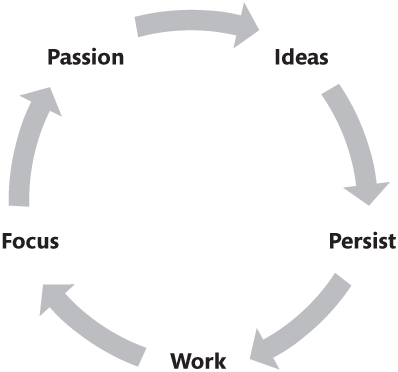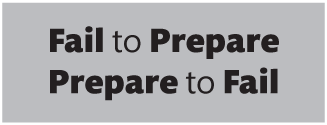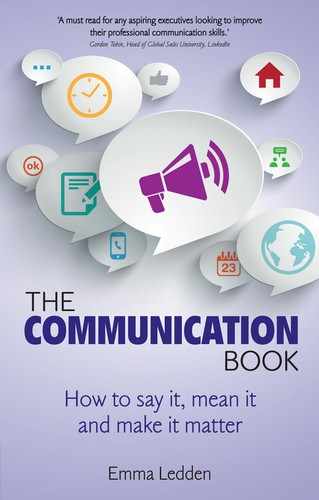At the beginning of my career, and for a long time after, I believed success was something that happened in a straight line. I believed success was like climbing a ladder.

I believed if I worked very hard I would reach my point of success. Once I reached my definition and destination of success I could stop trying.
Up to that point I was focused, I had passion, I came up with ideas and I persisted until my moment of success came. Because of this effort and commitment I reached the top of my chosen ladder.
Once there, filled with pride and achievement, I stopped.
I stopped working hard, I stopped being focused, I stopped being creative and I stopped being persistent.
I gave myself a big pat on the back and I stopped.
You can probably guess what happened next. Within two years or so, without any warning or concern for its effect on me, my success disappeared. Gone, like water running through my fingers.
By the time I realised what was happening it was too late to salvage all I had worked so hard for. Without notification or consideration, it vanished. Poof!
This was one of the hardest lessons I had to learn in my working life and it took me a long time to understand what happened, admit to my failings, dust myself off and try again.
Success is not a ladder you climb, where once you get what you want you stop trying. The determination, decisions and desire that got you to your moment of success require the same energy that you will need to maintain that success.

Success is not a ladder, as I once believed. Success is a circle. Success is a series of behaviours you act out every single day to reach your point of success and you must continue these, or slightly adapt them, to maintain your success.
One day at a time
So what do my life lessons have to do with you?
It can be very easy to nail a networking event, have a fabulous feedback session or, indeed, even do a marvellous media interview and believe you have mastered the art of communication.
The ability to be a great verbal communicator is not an end destination at the top of a ladder. It is not something you can take for granted once you have reached a certain stage in your career or had some success at it.
Successful communication is a skill that requires continuous commitment and effort.
In order to achieve success in your verbal communication skills, you will have to commit to keep improving those skills every day.
There are three elements you must aspire to work on every day: preparation, experience and feedback.

Let’s look at each one.
Preparation
Ninety per cent of the success of your communication in all the scenarios we have explored in this book come down to preparation.
I wish I could give you a simpler, sexier or more effortless path, but I can’t.
I don’t have a magic formula that allows you to deliver brilliant verbal communication without knowing the purpose, understanding the listener and preparing to speak.
Each situation you face every day will be different. Each human being will be individual and even when you interact with the same people regularly, they will think, know and feel differently today than they did yesterday.
No matter how confident you feel, no matter how well another exchange went last week, no matter how experienced you are, you must treat each interaction as a new one. You must stop, think and prepare using the approach and templates in this book every time you communicate.

Experience
Communication is a skill. To build a skill you need to do it as much as possible so you can learn.
As you learn any new skill you go through four stages of learning. This learning process is about making mistakes and learning from those mistakes. However, when we make mistakes as an adult we judge ourselves harshly for ‘not doing it right’, ‘not being good enough’, and we tell our selves ‘I can never learn this’.
Ironically, not doing it right and making mistakes as you learn to communicate are vital steps in the learning process to gain this great skill. To become a great communicator you have to go through the four stages of learning, as uncovered by Abraham Maslow in 1943 in his ‘A Theory of Human Motivation’, Psychological Review 50(4):
- Unconscious incompetence: ‘I don’t know that I don’t know how to do this.’ This is the stage of blissful ignorance before learning begins.
- Conscious incompetence: ‘I know that I don’t know how to do this.’ This is the most difficult stage, where learning begins and where you will start judging yourself harshly. This is also the stage when most people give up. Mistakes are integral to the learning process. They’re necessary because learning is essentially experimental and experience-based – trial and error. You can only learn by doing and making mistakes.
- Conscious competence: ‘I know I can do this. I am learning and it is showing.’ As you practise more and more, you move into the third stage of learning: conscious competence. This feels better, but your communication still isn’t going to be very smooth or fluid – at least not as much as you would like it to be. You will still have to think a lot about your behaviours.
- Unconscious competence: ‘I’m a natural!’ This is the final stage of learning a skill, and when it has become a natural part of us – although you still need to prepare before each interaction.
One of the biggest challenges you may face with some of the scenarios in this book is getting the chance to do them enough to move through these four stages.
If you only give feedback twice a year you will inevitably feel stuck at the stage where you know you are not quite doing it right but you are not getting the experience to improve.
I don’t know what you do for a living or how gaining this experience will look for you, but if you wish to improve you need to get as much practice and experience as possible at the communication scenario you wish to master.
Feedback
The final behaviour that is vital for your continual success is seeking feedback after you communicate.
The ‘70/20/10 Model in Learning and Development’ was developed by Morgan McCall and his colleagues, Michael M. Lombardo and Robert W. Eichinger, at the Centre for Creative Leadership in the year 1996. It stresses the need to extend learning beyond the parameters of the classroom. It also provides a framework for improving and extending traditional training and learning into the workplace, where:
- About 70 per cent of learning comes from direct experience of the skill through workplace learning and performance support.
- About 20 per cent of learning comes from social learning and feedback from mentors or managers.
- About 10 per cent of learning comes from structured courses and reading.
TO DEVELOP GREAT COMMUNICATION SKILLS YOU MUST:
- understand and gain the skill through attending courses and reading books;
- communicate on the job (or wherever possible) on a regular basis;
- receive feedback on a continual basis in relation to your communication.
In an earlier chapter of this book we looked at the importance of giving and receiving feedback in order to highlight any strengths or weaknesses that may not be visible to us because they are in our blind spot.
Asking for feedback and getting it is vital for your continuous improvement. If you go to a job interview and you don’t get the job, ask for feedback. If you run a workshop, ask for feedback at the end of the day. If you do a media interview on radio, listen back to it yourself as well as asking for feedback.
Conclusion
We live in a world full of options and choices, especially when it comes to communication. We can easily send an email, make a phone call or connect on social media.
All of these are legitimate forms of communication that can be very useful and appropriate at the right time. However, in the hierarchy of communication a face-to-face exchange will maximise your ability to connect on an emotional level. You can look into someone’s eyes, pick up on non-verbal cues and offer an appropriate response in every situation.
Face-to-face verbal communication is the most efficient form of communication. A recent Harvard/Columbia study showed a 38 per cent increase in retention with face-to-face meetings. Face to face is desirable for creating new relationships, renewing old relationships, communicating bad news and for resolving conflicts.
Being able to communicate well verbally is not the sole answer to all business challenges, but it is a vital skill to help you succeed in your chosen career path, behave authentically and build lasting business relationships.
